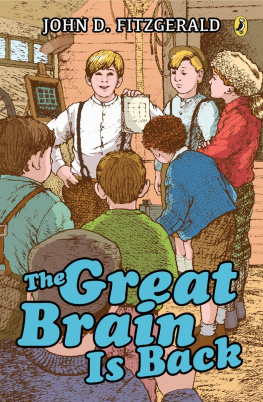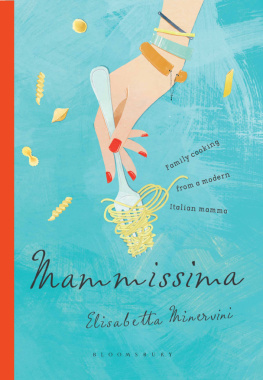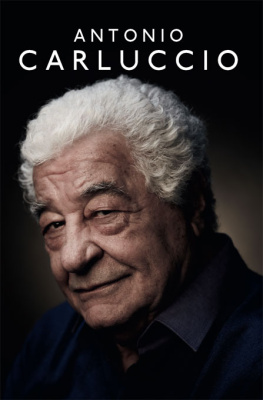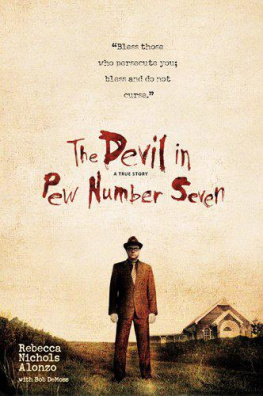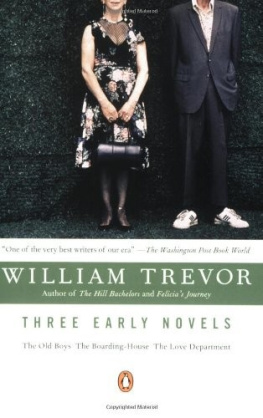

This edition is published by BORODINO BOOKS www.pp-publishing.com
To join our mailing list for new titles or for issues with our books borodinobooks@gmail.com
Or on Facebook
Text originally published in 1958 under the same title.
Borodino Books 2017, all rights reserved. No part of this publication may be reproduced, stored in a retrieval system or transmitted by any means, electrical, mechanical or otherwise without the written permission of the copyright holder.
Publishers Note
Although in most cases we have retained the Authors original spelling and grammar to authentically reproduce the work of the Author and the original intent of such material, some additional notes and clarifications have been added for the modern readers benefit.
We have also made every effort to include all maps and illustrations of the original edition the limitations of formatting do not allow of including larger maps, we will upload as many of these maps as possible.
MAMMAS BOARDING HOUSE
by
JOHN D. FITZGERALD
TABLE OF CONTENTS
Contents
DEDICATION
FOR MY WIFE
and with grateful acknowledgement to Monroe Stearns for his editorial recommendations, and to Belle F. Empey for her helpful research.
FOREWORD
THERE was more to the settling of the West than the battles between Cattle Barons and Sheepmen, Outlaws and Posses, White Men and Indians, Ranchers and Homesteaders which have been told in story and song over and over again.
There were other people who helped put down the roots of the West: the banker, the editor, the school-teacher, the judge, the clergyman, the merchant, the artist, the saloonkeeper, the miner, the town drunk and the town bully.
This is their story.
JOHN D. FITZGERALD
1MAMMA SELLS THE ADVOCATE
FOR two weeks the wreath had been gone from the front door that led into the parlor of our home, but everything in the room brought back memories of Papa and made his presence felt.
Mamma was sitting in her maple rocker with her hands clasped tightly in her lap. This, I thought to myself, is the first time Ive ever seen Mammas hands idle. They were always busy handssewing, mending, cooking, washing. It was as if she had to hold them to make them rest.
Now we are alone, Mamma said softly, but we shall never know loneliness. We can borrow Papa back in our memories whenever we feel lonely or need him. We cannot help but grieve, but we will not carry our grief into our futures. Papa would not want that.
She looked at my sister, who was sitting on the couch holding her baby son. You should be well enough to go back to the ranch in a few days, Katie.
But Mamma, Katie protested, I dont want to leave you alone so soon.
Your place is with your husband, Mamma said firmly. Then she turned to my eldest brother, Sweyn. Grandpa Neilsen has set aside enough money for you to complete your medical studies in Baltimore. You will return when school starts next month.
Then Mamma raised her eyes to Earnie Dawson, who was standing before the natural rock fireplace. She had raised Earnie, an orphan, as one of her own brood. It was she who discovered he had artistic talent and encouraged him to become an artist. Uncle Will was paying his expenses at art school. Earnest, Mamma said, you will return to your art school in New York. Perhaps you and Sweyn can make the trip back east together.
My brother Tom and I were sitting on the leather seat under the big bay window. Tom was engaged to Julia Aden, the Mormon Bishops daughter, and worked for his future father-in-law, who owned the Hay, Grain and Feed Store. Tom had been on a Mission to the Orient for the Church of Jesus Christ of Latter-day Saints.
You will remain here, Tom D., Mamma said to him, until you marry Julia and have a home of your own.
Then she looked at me. That leaves you, John D. We will sell The Adenville Advocate to get enough money to send you away to college.
We all looked toward Sweyn because he was the eldest. He shook his head slowly. That wouldnt bring enough money to send J. D. to college and support you until Earnie and I are out of school and able to help.
Ive thought of that, Mamma said. I have this big house and all these empty rooms. Im considered a good cook. I shall take in boarders. Ive discussed it with Bertha and she agrees we can manage very nicely.
Aunt Bertha Tuttle wasnt really our aunt, but she had come to live with us after the death of her husband twelve years before, and was very much a member of the family.
Katies eyes widened. Boarders! She said the word as if it were distasteful. Mamma, how could you even think of such a thing?
Sweyn nodded. Katie is right, Mamma. You cant be serious. Papa was editor and publisher of The Adenville Advocate. He had prestige in town and was loved and respected and looked up to by everybody. What will people think when they hear his widow has to take in boarders for a living?
Mamma had a beautiful, gentle face, and I often wondered how such an indomitable will as her could exist beneath it. No argument, no pleading, could make her change her mind.
Papa, she said slowly, died poor in material wealth, but rich in the love and respect of his fellow men. If each of you can leave the same legacy to your own children, Papa and I will be very proud of you.
My brother Tom shrugged his broad shoulders. But why take in boarders, Mamma? Uncle Will is a rich man. He could lend us enough money for all our needs until the boys are out of school, and then we can all help you.
You are your fathers children, Mamma said with finality in her voice. You will stand on your own feet. As for the boarding house, I dont want to hear another word about it.
She stood up and looked at the black clothes she was wearing. I shall wear mourning for only a month, she said as if speaking to herself. It would have a depressing effect upon my boarders.
Good heavens, Mammal Katie exclaimed. People will say you are setting your cap for another husband if you dont wear mourning for at least six months.
Mamma smiled at her. I have never been greatly concerned about what people say, as long as my conscience doesnt object and I know the good Lord wouldnt disapprove. I do know what Papa would say if he could speak to me right now. Hed say, Good girl, Tena, I never did like you in black.
Bishop Ephraim Aden, the founder of Adenville, had been one of Papas dearest friends. The Bishop, a man of great understanding, tolerance and wisdom, had been mayor of Adenville for as long as I could remember. Although he was now in his seventies, he walked with the spring of youth in his step and still worked eight hours a day in the Hay, Grain and Feed store he owned. As Bishop of the Ward, he gave both temporal and spiritual advice to the Saints; he officiated at dances in the L. D. S. Tabernacle recreation hall and all Mormon social events; he settled both marital and civil disputes among the Saints. Bishop Aden was like a loving grandfather, and the Gentiles in town loved him as much as the Mormons did.
A few days after Sweyn and Earnie had gone back east to school, Bishop Aden came to our house with a stranger named Stephen Hackett.
I showed them into the parlor and called Mamma from the kitchen.
The fingers of Bishop Adens left hand intertwined themselves in his flowing white beard. He leaned his head to one side and with the fingers of his other hand began pulling at the remaining lobe of his right ear. All but the lobe of that ear had been shot off during a hunting accident when he was a youth, and he had formed a habit of reaching for it and, finding it missing, pulling at the remaining part.
Next page


